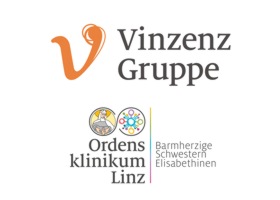Fastner, Gerd und Sedlmayer, Felix und Widder, Joachim und Metz, Martina und Geinitz, Hans und Kapp, Karin und Fesl, Christian und Sölkner, Lidija und Greil, Richard und Jakesz, Raimund und Kwasny, Werner und Heck, Dietmar und Bjelic-Radisic, Vesna und Balic, Marija und Stöger, Herbert und Wieder, Ursula und Zwrtek, Ronald und Semmler, Dagmar und Horvath, Wilfried und Melbinger-Zeinitzer, Elisabeth und Wiesholzer, Martin und Wette, Viktor und Gnant, Michael
(2020)
Endocrine therapy with or without whole breast irradiation in low-risk breast cancer patients after breast-conserving surgery: 10-year results of the Austrian Breast and Colorectal Cancer Study Group 8A trial.
European journal of cancer (Oxford, England : 1990), 127.
pp. 12-20.
ISSN 1879-0852
Für diesen Eintrag wurde kein Volltext-Dokument angefügt.
Kurzfassung
PURPOSE
To investigate long-term results of patients with hormonal receptor-positive breast cancer treated with breast-conserving surgery (BCS) and consecutive endocrine therapy (ET) with or without whole breast irradiation (WBI).
METHODS AND MATERIALS
Within the 8 A trial of the Austrian Breast and Colorectal Cancer Study Group, a total of 869 patients received ET after BCS which was randomly followed by WBI (n = 439, group 1) or observation (n = 430, group 2). WBI was applied up to a mean total dosage of 50 Gy (+/- 10 Gy boost) in conventional fractionation.
RESULTS
After a median follow-up of 9.89 years, 10 in-breast recurrences (IBRs) were observed in group 1 and 31 in group 2, resulting in a 10-year local recurrence-free survival (LRFS) of 97.5% and 92.4%, respectively (p = 0.004). This translated into significantly higher rates for disease-free survival (DFS): 94.5% group 1 vs 88.4% group 2, p = 0.0156. For distant metastases-free survival (DMFS) and overall survival (OS), respective 10-year rates amounted 96.7% and 86.6% for group 1 versus 96.4% and 87.6%, for group 2 (ns). WBI (hazard ratio [HR]: 0.27, p < 0.01) and tumour grading (HR: 3.76, p = 0.03) were found as significant predictors for IBR in multiple cox regression analysis.
CONCLUSIONS
After a median follow-up of 10 years, WBI resulted in a better local control and DFS compared with ET alone. The omission of WBI and tumour grading, respectively, were the only negative predictors for LRFS.
Aktionen (Anmeldung erforderlich)

- Eintrag anzeigen


 Tools
Tools Tools
Tools